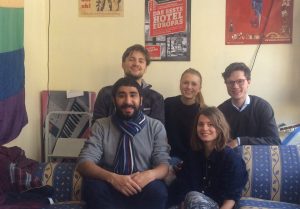 When I started to study, I didn’t realize how many different ways of volunteering there are. Since I had to give up my voluntary work in my hometown, I wanted to get involved again. A friend took me to the Sozialreferat at the University of Augsburg. From the beginning, I was enthusiastic about their ideas and I’m convinced that if they’re implemented, they’ll benefit students a lot. But see for yourself…
When I started to study, I didn’t realize how many different ways of volunteering there are. Since I had to give up my voluntary work in my hometown, I wanted to get involved again. A friend took me to the Sozialreferat at the University of Augsburg. From the beginning, I was enthusiastic about their ideas and I’m convinced that if they’re implemented, they’ll benefit students a lot. But see for yourself…
Timetabling
Timetabling is not an easy task, especially when you’re starting off. Often the lectures clash with each other or you have a job. Module handbooks, professors and even fellow students from higher semesters sometimes don´t make matters better either. Through our schedule support we – the Sozialreferat – want to give you advice and help you with various issues throughout the semester(s).
The Monday meeting (an informal chat)
We offer an opportunity for an informal chat every Monday. We talk about all kinds of things (concerns, etc.) regarding university and personal things. Sometimes we just act as a sounding board so students get new ideas for their studies and replenish energy reserves. Sometimes you only need a sympathetic ear or an objective opinion to cope.
Seminars
Bafög-Seminar
In this seminar, students find out about the various ways of funding their studies. There are some sources which aren’t widely known about, such as study loans, scholarships or housing allowances. We also discuss how and where to apply for these “cash injections” and who is entitled to do so.
Future projects
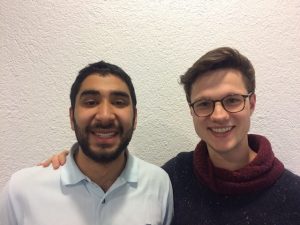 Social Foundation
Social Foundation
Up to now, students here who are experiencing an emergency haven’t been able to apply for short-term loans. In certain situations, the Sozialreferat wants to make this possible. So we’re trying to convince the responsible ministry.
Psycho-social counseling
In this consultation, we hope to be supported by the Chair of Educational Sciences: in the “Counseling for schools” training course, students have to complete a one-week internship at a counseling center. We’d like to offer this internship on our premises.
Guidelines
With regard to the increasingly heterogeneous student body, a manual with the most important contact information, as well as tips for your studies is being planned. The purpose of this manual is to create a flexible problem-solving resource for students and to complement the work of current and future counselors and employees.
The first semester can be confusing and nerve racking in every way. Receiving timetable aid, for instance, is very important in order to plan your studies efficiently and is one of many factors that will make things less stressful. I still remember exactly how confused and overwhelmed I was in the first semester when I had to create my own schedule which was in the end not very effective. I wish someone more experienced had helped me at that time.
Now being part of the team I hope that we can achieve a lot and that students will benefit from our help. We’re there for you for all concerns and problems that occur during your daily student life. We offer you a wide range of services such as consultations, seminars or lectures.
If you’d like to support us, please contact us and become part of our great team!
Author & Pictures: Carolin Steinke

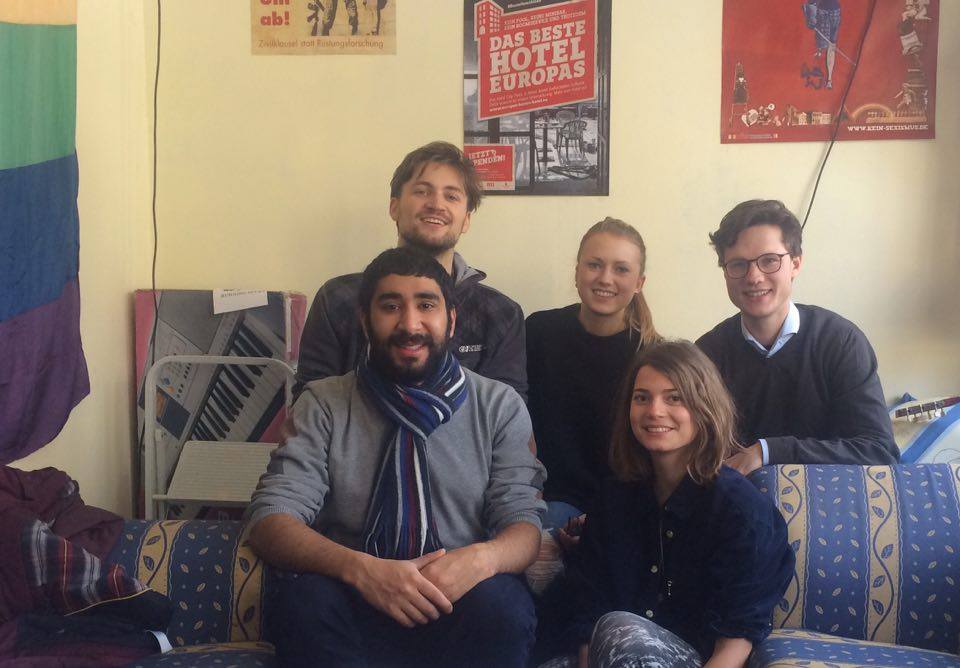
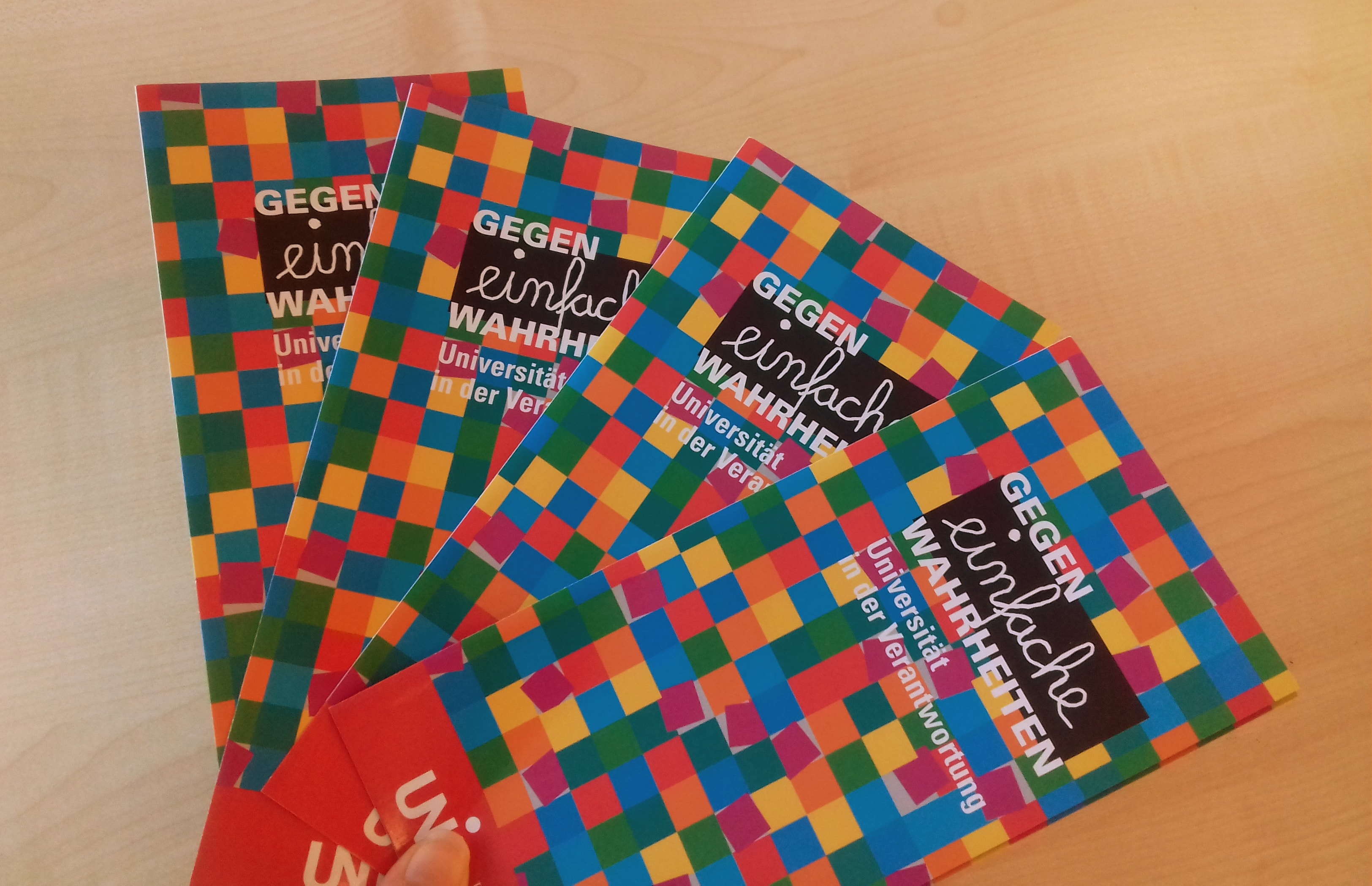
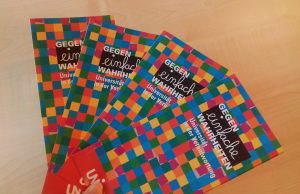
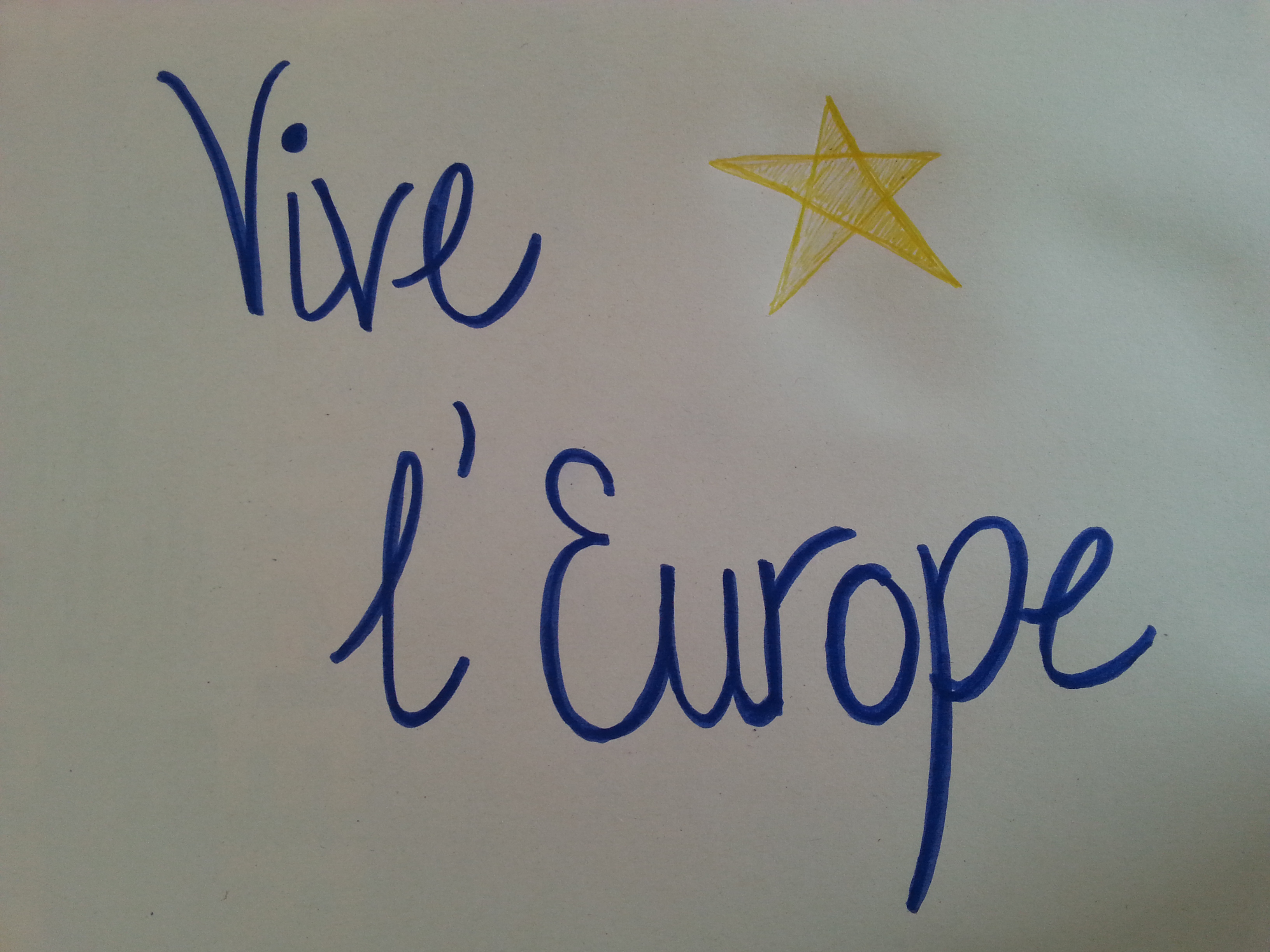
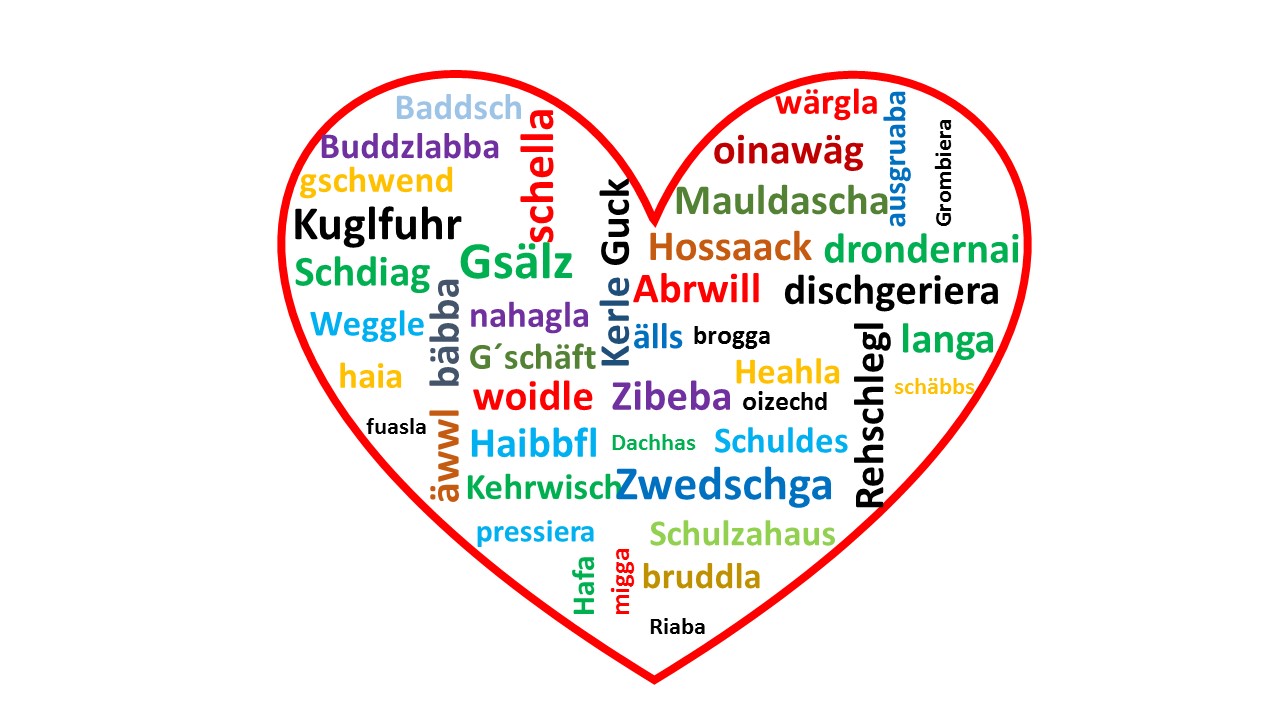
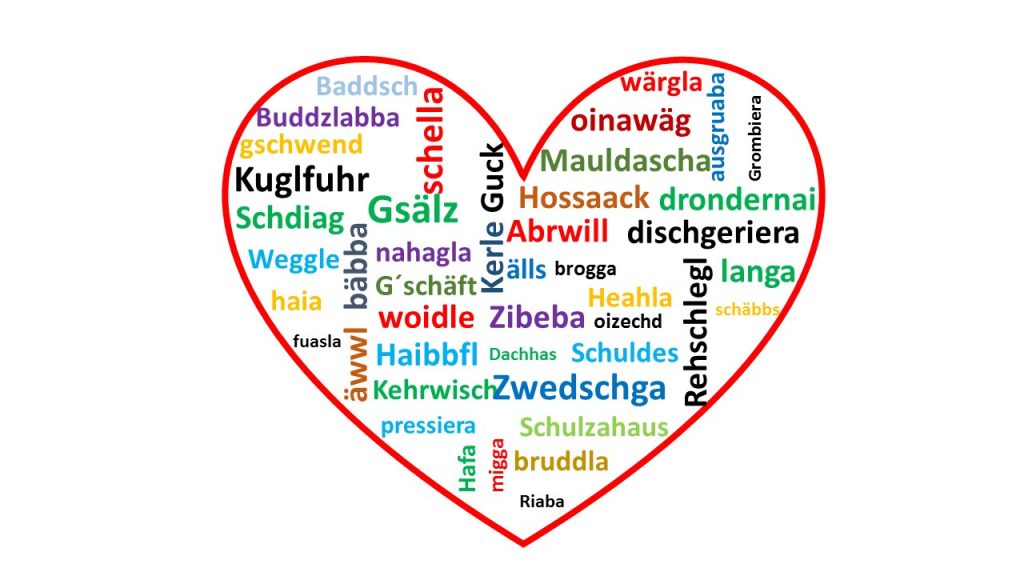 “I hol mer zerscht mol en Kaffee in dr Kafede, sonschd schlof I glei wieder ei.” If you hear this at university in the morning, you might not understand it as a non-Swabian. Of course, there’s a wide spectrum of dialects in Germany, some of which aren’t easy for outsiders. Since our noble institution is located in the Swabian part of Bavaria, some of the residents speak Bavarian varieties (“Boarisch“), whereas others „schwätzat Schwäbisch“, with the river Lech as a linguistic border. Augsburg, as the capital of Swabia, has its own Swabian variety: Augschburgerisch. In fact, you will be easily detected as a „Zuazogner“, if you say Augsburg instead of Augschburg.
“I hol mer zerscht mol en Kaffee in dr Kafede, sonschd schlof I glei wieder ei.” If you hear this at university in the morning, you might not understand it as a non-Swabian. Of course, there’s a wide spectrum of dialects in Germany, some of which aren’t easy for outsiders. Since our noble institution is located in the Swabian part of Bavaria, some of the residents speak Bavarian varieties (“Boarisch“), whereas others „schwätzat Schwäbisch“, with the river Lech as a linguistic border. Augsburg, as the capital of Swabia, has its own Swabian variety: Augschburgerisch. In fact, you will be easily detected as a „Zuazogner“, if you say Augsburg instead of Augschburg.
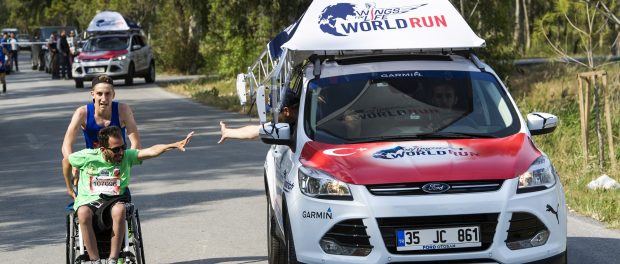
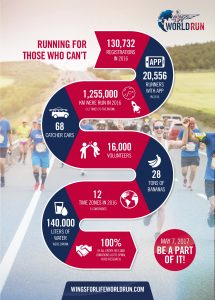 Helping out
Helping out
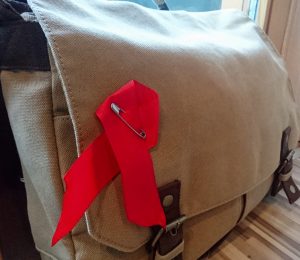 As a sign of your solidarity and to show your support, you can wear The Red Ribbon tomorrow, a red loop that indicates your awareness. Just put it on your bag or wherever you like. It’s very important to raise awareness in order to sensitize people and avoid the further spread of HIV and AIDS. But carrying the HI virus doesn’t mean you’re affected by AIDS. For example, 85% of people diagnosed with HIV in the UK are not infectious.
As a sign of your solidarity and to show your support, you can wear The Red Ribbon tomorrow, a red loop that indicates your awareness. Just put it on your bag or wherever you like. It’s very important to raise awareness in order to sensitize people and avoid the further spread of HIV and AIDS. But carrying the HI virus doesn’t mean you’re affected by AIDS. For example, 85% of people diagnosed with HIV in the UK are not infectious.
 with much love and creativity. The walls are covered with paintings and other artwork. Every table has a menu that offers breakfast, lunch and dinner, depending on the time of the day. You might expect that the low costs mean it’s automatically self-service, but I was more than surprised that after a few minutes a friendly waitress came to our table to take our order. We felt like guests at her house and she was inviting us for dinner.
with much love and creativity. The walls are covered with paintings and other artwork. Every table has a menu that offers breakfast, lunch and dinner, depending on the time of the day. You might expect that the low costs mean it’s automatically self-service, but I was more than surprised that after a few minutes a friendly waitress came to our table to take our order. We felt like guests at her house and she was inviting us for dinner.